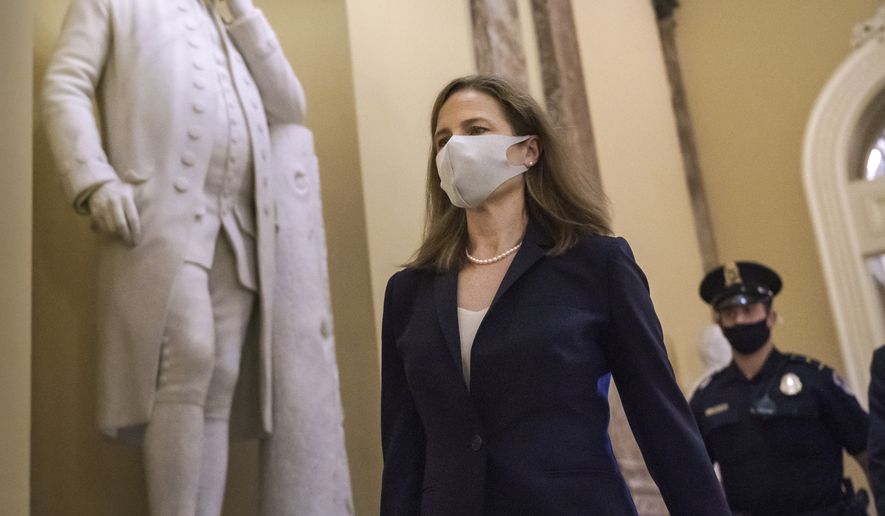The full Senate officially began debating the nomination of President Trump’s Supreme Court pick Amy Coney Barrett on Friday, and Democrats quickly moved to close the chamber and shut off the cameras in what they said would be a frank and open debate behind closed doors.
The closed-door session did not derail the Republican majority’s schedule of holding a final confirmation vote for Judge Barrett on Monday night.
Closed-door sessions are rare and are usually used to discuss issues of national security.
But Senate Minority Leader Charles E. Schumer tried to use the time to suggest the lawmakers needed to explore the consequences of confirming Judge Barrett to the high court less than two weeks before a presidential election.
“We should shut off the cameras, close the Senate, and talk face-to-face about what this might mean for the country. We need to restore public trust in our institutions, not continue to undermine it,” the New York Democrat said.
Senators only went behind closed doors for less than half an hour before the cameras were back up and running, showing the senators at their desks inside the chamber.
Senate Majority Leader Mitch McConnell praised the nominee’s character and qualifications, saying she is the type of justice that would make the American people proud.
He put the blame on Democrats for elevating the partisanship involved in judicial nominations in recent years.
“Let’s get on with it. Let’s do our job,” the Kentucky Republican said.
Mr. Schumer blamed the GOP majority who he said has “trampled” over Senate norms and rules.
He insisted Mr. McConnell and the Republicans changed their own precedent swiftly processing Judge Barrett’s nomination when they refused to process President Barack Obama’s high court nominee in 2016, saying it was an election year.
“Might does not make right,” Mr. Schumer said.
Mr. McConnell, though, had reasoned in recent statements, as well as in 2016, that historically a Senate hasn’t processed a president’s nominee when the chamber and the White House were held by different parties.
• Alex Swoyer can be reached at aswoyer@washingtontimes.com.




Please read our comment policy before commenting.